Agriculture
Agriculture is the science, art, and business of cultivating soil, producing crops, and raising livestock for human use. It involves a wide range of practices, including crop production, animal husbandry, and agribusiness.
Key Concepts
- Farming Systems: Different types of farming systems, such as subsistence farming, commercial farming, and mixed farming.
- Crop Production: Techniques for cultivating various crops, including selection of seeds, planting, irrigation, and pest control.
- Livestock Management: Rearing and breeding of domestic animals for meat, milk, wool, and other products.
- Agribusiness: The business of agricultural production, including supply chain management, marketing, and distribution of agricultural products.
- Sustainable Agriculture: Practices that aim to maintain productivity while minimizing environmental impact, such as organic farming and crop rotation.
- Genetic Engineering: The application of biotechnology to modify the genetic makeup of plants and animals for improved traits.
Study Guide
Here are some key topics to focus on when studying agriculture:
- Understand the different farming systems and their characteristics.
- Learn about the major crops and their cultivation techniques, including the use of fertilizers and pesticides.
- Explore the management practices for various livestock species, including feeding, breeding, and disease control.
- Examine the role of agribusiness in the agricultural industry, including marketing strategies and the global food supply chain.
- Consider the environmental and societal impacts of agricultural practices, and the concept of sustainable agriculture.
- Discuss the ethical and scientific implications of genetic engineering in agriculture.
Conclusion
Agriculture is a fundamental aspect of human civilization, providing food, fiber, and other essential resources. Understanding the principles and practices of agriculture is crucial for addressing global food security and environmental sustainability.
.◂Biology Worksheets and Study Guides High School. Vertebrates II
Worksheet/Answer key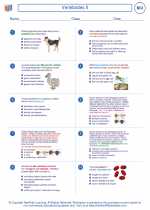 Vertebrates II
Vertebrates II  Worksheet/Answer key
Worksheet/Answer key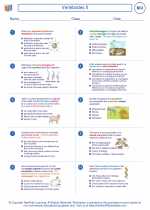 Vertebrates II
Vertebrates II  Worksheet/Answer key
Worksheet/Answer key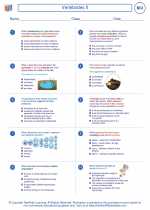 Vertebrates II
Vertebrates II  Vocabulary/Answer key
Vocabulary/Answer key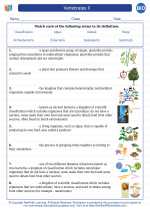 Vertebrates II
Vertebrates II  Vocabulary/Answer key
Vocabulary/Answer key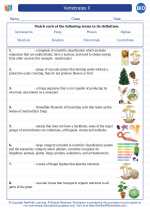 Vertebrates II
Vertebrates II  Vocabulary/Answer key
Vocabulary/Answer key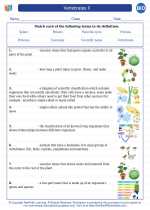 Vertebrates II
Vertebrates II 

 Worksheet/Answer key
Worksheet/Answer key
 Worksheet/Answer key
Worksheet/Answer key
 Vocabulary/Answer key
Vocabulary/Answer key
 Vocabulary/Answer key
Vocabulary/Answer key
 Vocabulary/Answer key
Vocabulary/Answer key

The resources above cover the following skills:
LIFE SCIENCE (NGSS)
Ecosystems: Interactions, Energy, and Dynamics
Students who demonstrate understanding can:
Use mathematical representations to support and revise explanations based on evidence about factors affecting biodiversity and populations in ecosystems of different scales.